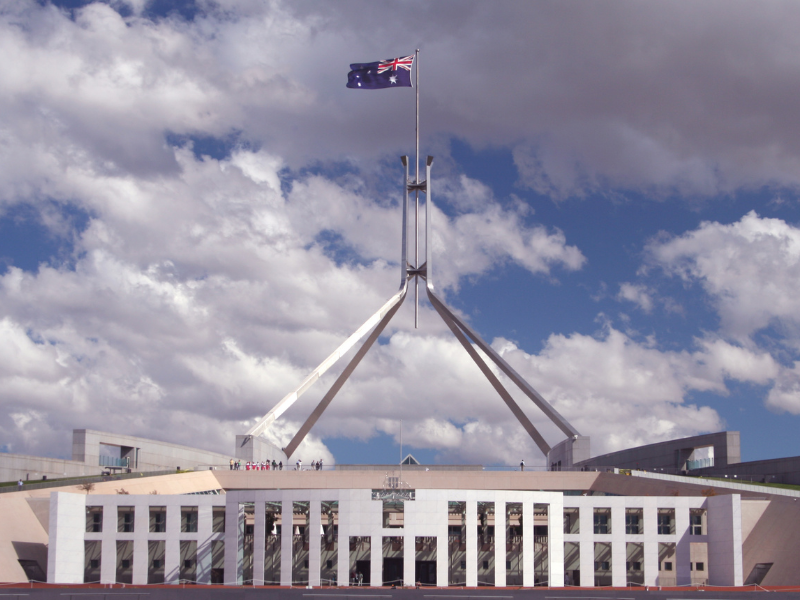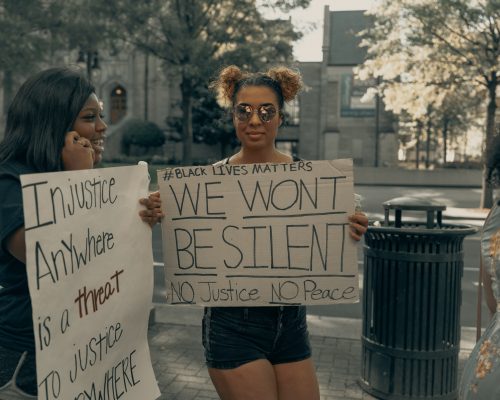Whenever there’s an election, I’m reminded of how little some sectors of the church have learned about the detrimental impact of polarising political statements made by churches and church leaders on the Gospel.
While I support Christians participating in politics or running for political office, the church as a whole—and pastors in particular—must remain above politics, nonpartisan, and committed to its central message: the good news of God’s love and grace through Jesus Christ. Anything that obscures that message is an enemy of the Gospel.
Too Political
Several years ago, the Barna Foundation commissioned research among young adults (ages 16-29) to determine why they did not engage with or had ceased to be involved in a church. One of the six reasons was that the church was “too political.”
I find it bewildering when church leaders make politically divisive statements, despite the evidence showing that this harms the cause of Christ. Sadly, we have observed a significant portion of the American church aligning politically, resulting in disturbing effects.
Conservatives Only?
A while ago, I saw a post on a pastor’s Facebook page encouraging his followers and congregation to “Let righteousness reign. Put Labor and the Greens last!” I realise this reflects the views of many conservative Christians, but my question is: what message does this send to people in that church who may disagree? What about people who do vote Labor or Green and still love Jesus? What about those in the broader community who are considering Jesus and the Church but are put off by this statement? Isn’t the Gospel inclusive, or do you have to change how you vote when you become a Christian? Also, why is it “righteous” to vote for a conservative party?
I don’t ask the people in our church who they vote for—it’s not my business—but I imagine we have all sorts of political perspectives at Bayside Church. Some of our members are conservative, while others have told me they’re voting for the Teals. Others are Green or Labor. People in our church are free to follow their conscience and vote accordingly. Our unity is found solely in the person of Jesus, whose kingdom is not of this world.
The Checklist
The aforementioned pastor shared the following chart compiled by the Australian Christian Values Institute.

The Christian Values Checklist informs voters about what each political party represents regarding various moral and ethical issues. The chart states, “On many welfare and social justice issues, the party policies are very similar. Our aim is to deal with the moral and ethical issues that are rarely, if ever, discussed publically [sic] in an election campaign.” I’ll return to that statement later.
The implication is that if you are a devoted Christian, you will likely vote for Family First, One Nation, or Trumpet of Patriots.
They Come and Go
In times past, the Australian Christian Values Institute has commended the Christian Democrats, the DLP, and Rise Up Australia. The Christian Democrats, Fred Nile’s party, were dissolved in 2022 by the courts due to longstanding legal challenges and governance issues. In the same year, the DLP (Democratic Labour Party) was deregistered because of a lack of members. Rise Up Australia was voluntarily deregistered by the Australian Electoral Commission in 2019. Rise Up’s leader, Danny Nalliah, has been surrounded by significant controversy for many years.
In 2025, we have some new parties to uphold “Christian values,” but if you can’t stomach any frontrunners, then the Nationals or the Libs would be your choice. However, whatever you do, “Let righteousness reign. Put Labor and the Greens last!”
Christian Values?
Let’s examine those Christian values. Predictably, they align with what one would expect from conservative Christianity in Australia, which has been significantly influenced by American Evangelicalism. In this tradition, the two main issues Christians should concentrate on are matters related to abortion and the LGBTQ+ community (stop both as much as you can).
While the chart helps you understand the various parties’ stances on these topics, I can’t help but notice the missing elements, which brings me back to the statement about welfare and social justice issues. Why separate these from a Christian Values Checklist?
Are refugees, the homeless, those living with mental illness, and victims of domestic violence not worthy of the Christian vote? Which party or parties have the best policies in place to help those on the margins of society? The chart includes nothing about those living in poverty, and it appears that the environment was added as an afterthought! Maybe I’m wrong, but is caring for God’s creation less critical than opening Parliament with a Christian prayer? And, on that topic, since when has it been a Christian value to force people to say a prayer if they don’t want to? Selah!
Jesus’ Example
For followers of Jesus Christ, He remains our example of Christian values. Jesus began and concluded His ministry with unequivocal value statements:
“The Spirit of the Lord is upon me, for he has anointed me to bring Good News to the poor. He has sent me to proclaim that captives will be released, that the blind will see, that the oppressed will be set free, and that the time of the Lord’s favour has come.”
At the end of his earthly ministry, Jesus proclaimed that his followers would care for the hungry and thirsty, the stranger, the naked, the sick, and those in prison.
You’ll notice the overlap in Jesus’ statements. It seems His heart for those struggling in life didn’t change during His ministry years, and it still hasn’t.
As you vote in this or any election, consider what is important to you, but don’t stop there. What about others, especially those on the margins? The people for whom Jesus mainly showed concern. Paul put it this way, “Don’t look out only for your own interests, but take an interest in others, too.”
Jesus said, “So in everything, do to others what you would have them do to you.” Being like Jesus means we will be interested in the people He showed interest in, such as those who are homeless, sick, or in prison; the poor, orphans, and widows; as well as those living with disabilities or who are victims of domestic violence.
Your vote should support candidates who implement policies that demonstrate care and concern for the most vulnerable members of our community, as well as for God’s creation.
A Final Word
The church and Christian leaders must remain non-partisan. The Gospel is good news for all people. The church does not thrive when in power; it’s not meant to rule nations or manipulate political systems. It’s intended to proclaim a message of reconciliation with a God who loves people and a Saviour who died and rose again to extend amazing grace. Let’s never lose this focus.
















